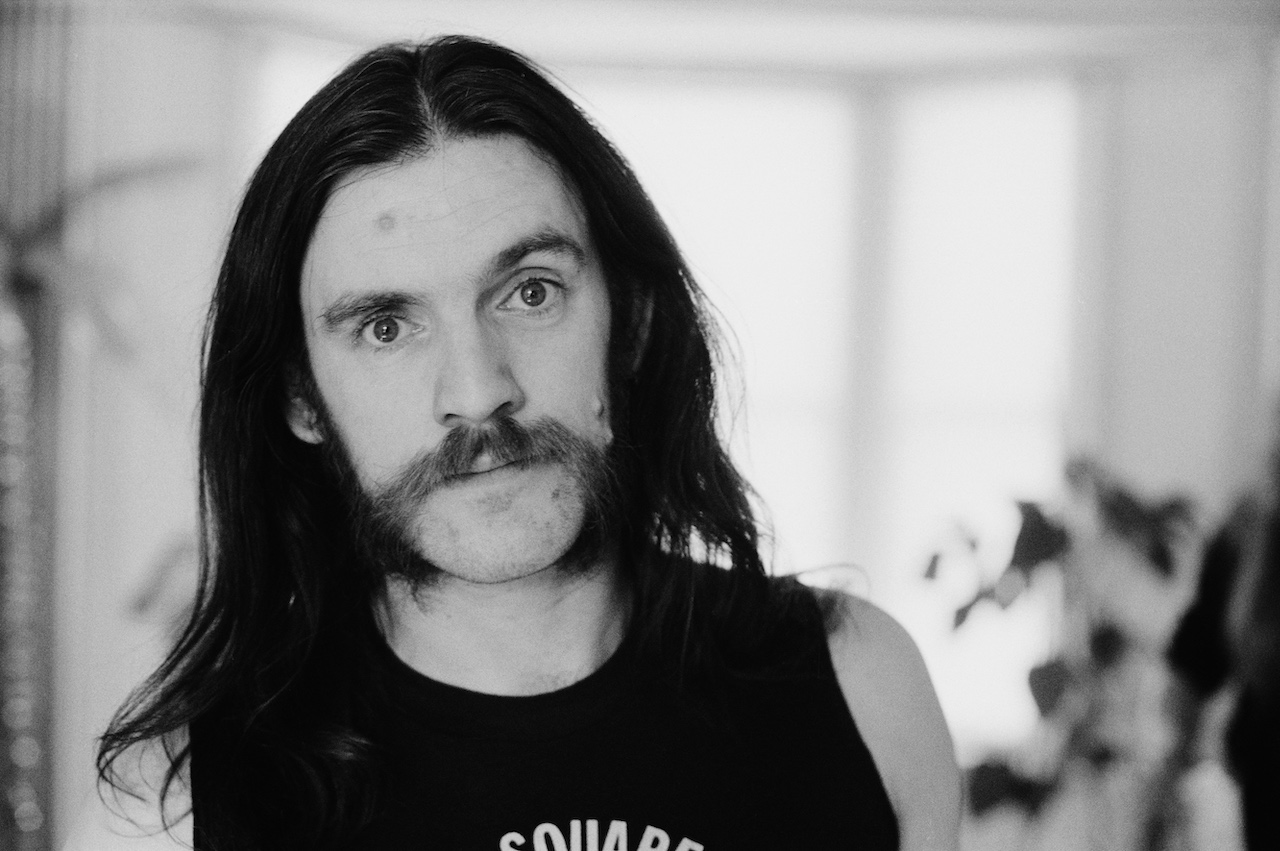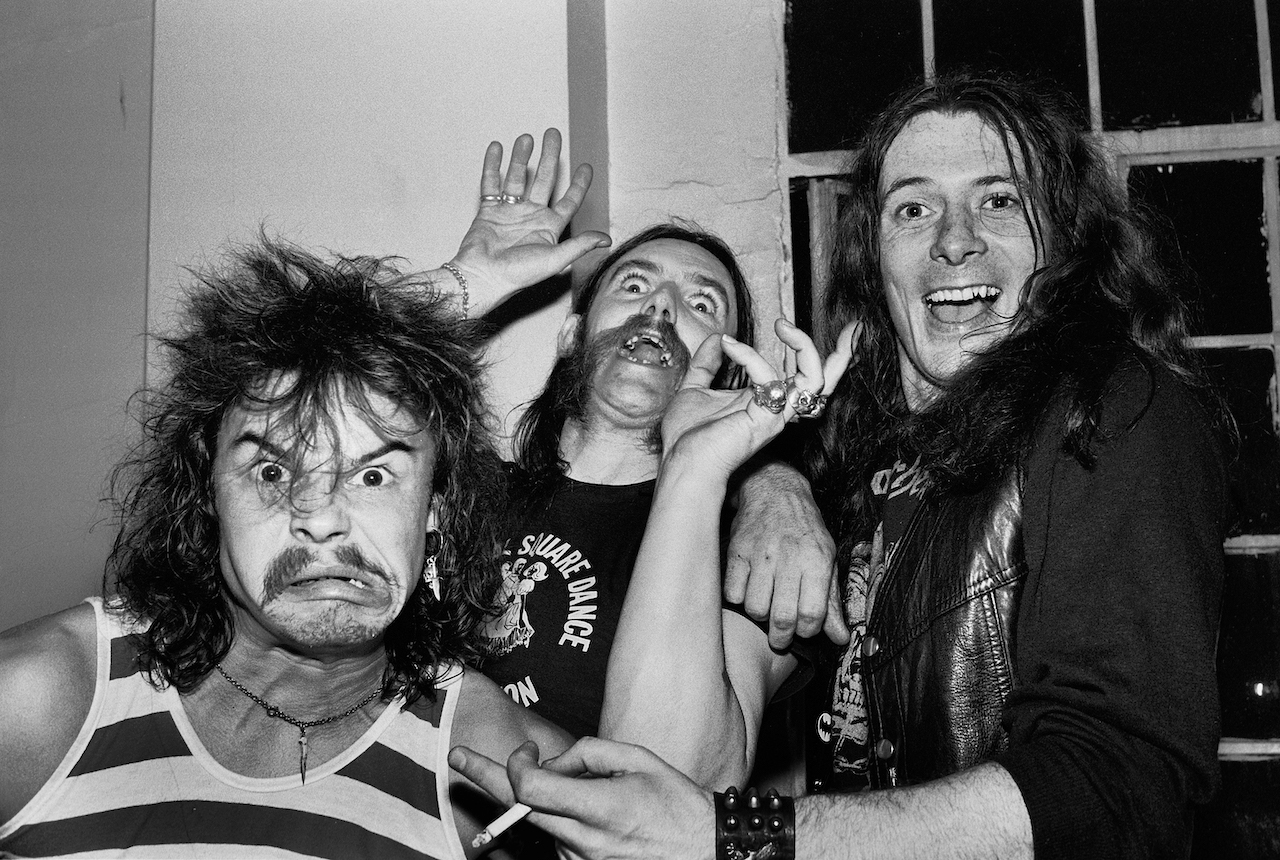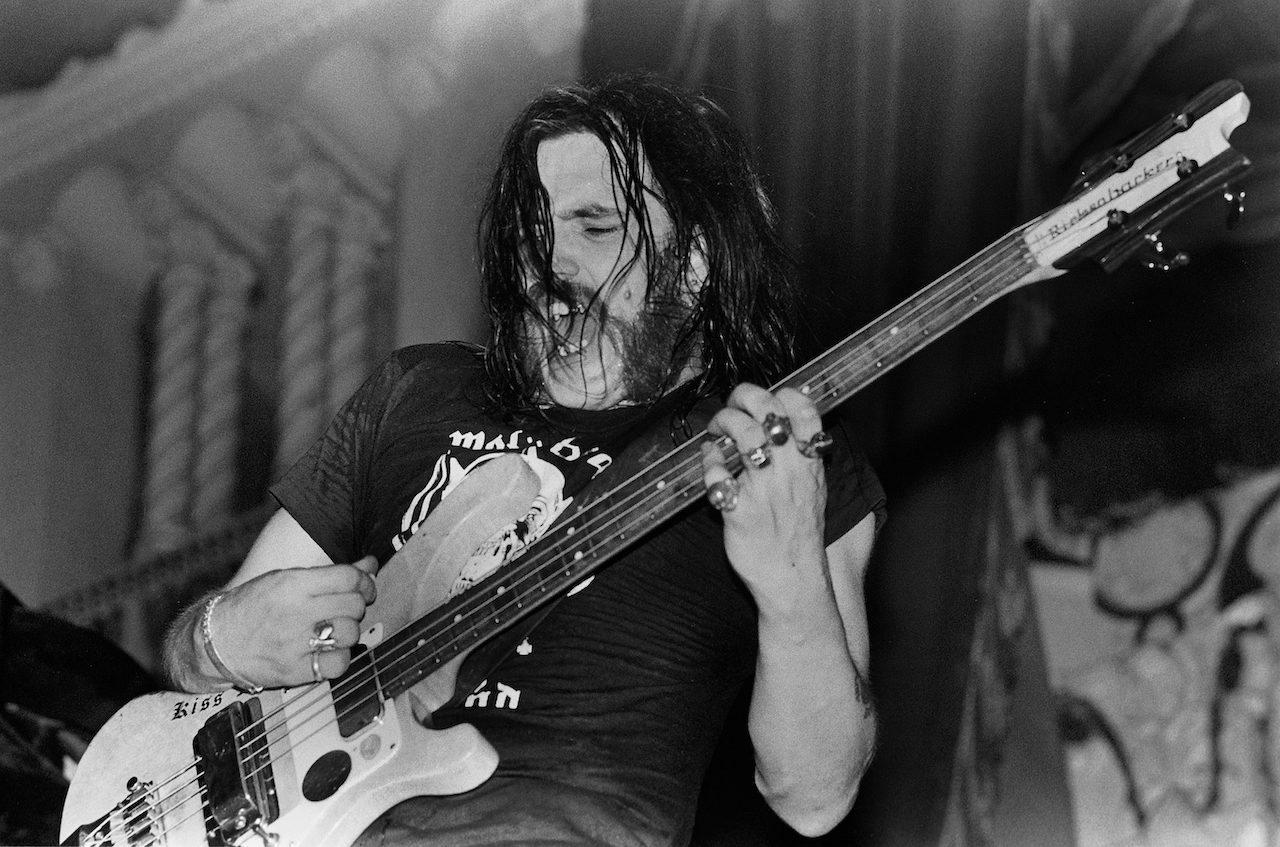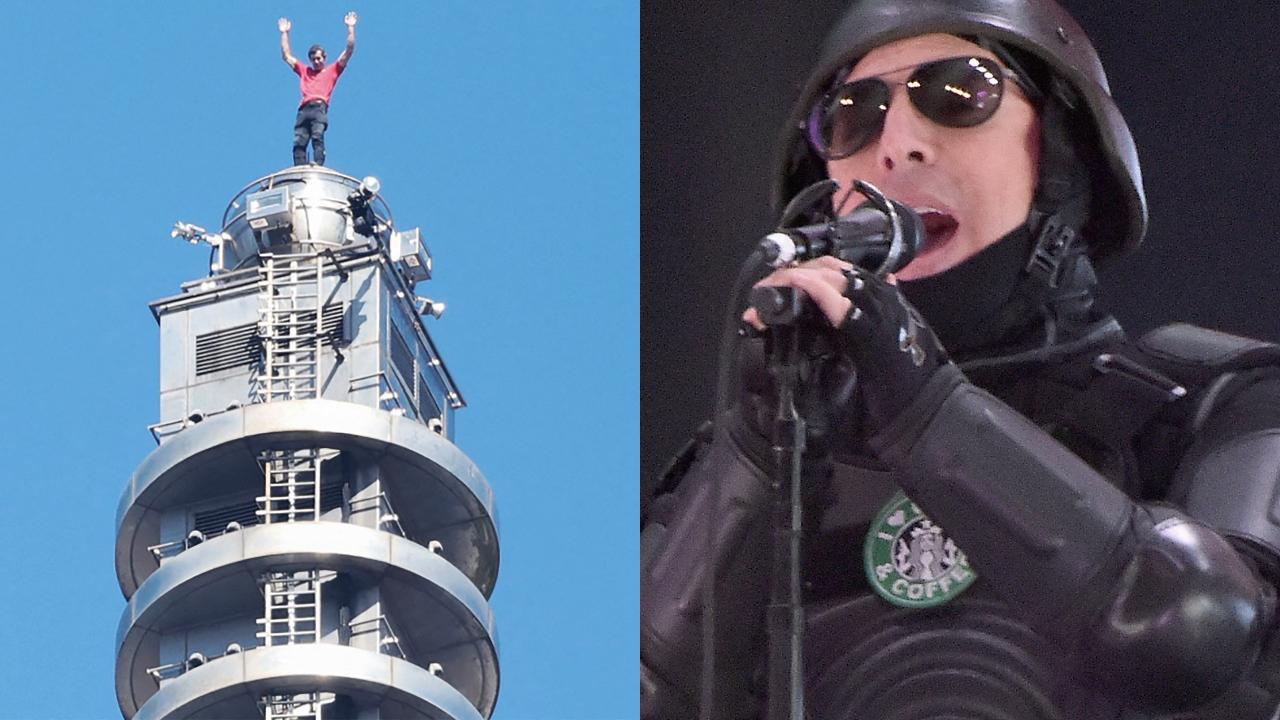"The label expected us to do a pop album!": The lost Lemmy interview
In July 1981, shortly after No Sleep ’Til Hammersmith topped the charts, Hammer’s Malcolm Dome met Lemmy to talk about Motorhead’s fast-rising fame. Unpublished until now, here is their conversation in full

Select the newsletters you’d like to receive. Then, add your email to sign up.
You are now subscribed
Your newsletter sign-up was successful
Want to add more newsletters?

Every Friday
Louder
Louder’s weekly newsletter is jam-packed with the team’s personal highlights from the last seven days, including features, breaking news, reviews and tons of juicy exclusives from the world of alternative music.

Every Friday
Classic Rock
The Classic Rock newsletter is an essential read for the discerning rock fan. Every week we bring you the news, reviews and the very best features and interviews from our extensive archive. Written by rock fans for rock fans.

Every Friday
Metal Hammer
For the last four decades Metal Hammer has been the world’s greatest metal magazine. Created by metalheads for metalheads, ‘Hammer takes you behind the scenes, closer to the action, and nearer to the bands that you love the most.

Every Friday
Prog
The Prog newsletter brings you the very best of Prog Magazine and our website, every Friday. We'll deliver you the very latest news from the Prog universe, informative features and archive material from Prog’s impressive vault.
When Motorhead released their first live album, No Sleep ’Til Hammersmith, in June 1981, few people expected it to debut at the top of the UK chart. But that’s exactly what happened.
The band – Lemmy, ‘Fast’ Eddie Clarke and Phil ‘Philthy Animal’ Taylor – had been steadily building up a commercial head of steam. However, No Sleep ’Til Hammersmith put them on another level. The album was recorded in March/April of that year when they played five dates in the UK. The shows at the Queens Hall in Leeds (March 28) and the City Hall in Newcastle (the following night) were captured for the live album, although it was mostly the latter recording that ended up being used.
When the album bulleted its way to the peak of the chart, the band were on tour in America, opening for Blizzard Of Ozz, Ozzy Osbourne’s new band. They returned in June, ready to headline the Heavy Metal Holocaust at Port Vale FC on August 1, ironically with Ozzy and his band just below them on the bill.
A couple of days before this festival, I interviewed Lemmy at the offices of Bronze Records (Motorhead’s label), in Chalk Farm Road, London. This was for Irish magazine Hot Press, and the man himself was in a relaxed and cheerful mood as we sat in a well-upholstered office for the chat. Lemmy was now much in demand with the media, so I only had 30 minutes allotted, but he did have some interesting things to say.
The feature didn’t run in the magazine, for reasons that were never explained. And it has remained unpublished. Until now. I recently came across the handwritten transcript by accident. So, 40 years on, here is a missing-presumed-lost gospel according to Lemmy.

Why did you decide to do a live album now?
Something to do! No, we have been thinking for a while about doing a live album. We’re at our best in front of a crowd. That’s where we shine. And fans have been asking when we were gonna do one. So, we decided to record shows on our March tour. They came out well and we took it from there.
Sign up below to get the latest from Metal Hammer, plus exclusive special offers, direct to your inbox!
You recorded a few gigs. How did you choose what to use?
We left a lot of that to Vic Maile. He’s our producer, so we made him do some work for his money. He went through all the tapes and chose what he felt to be the best versions of each track. And then we listened to what he’d put together and mostly agreed with him. Vic did a great job. Not only in the selections. But also in the way he’s mixed everything. It could have come out very sloppily and sounded like it didn’t flow. But he made sure what you hear comes over as if everything is from one night.
Why didn’t you just record one performance?
Because you don’t know what will go wrong on any night. It would have been a big risk just to have the one date recorded. We had the equipment available, so thought it best to have some back-up. Just in case.
But one show would surely have been more authentic? That way you get the feel of what happened on that night...
You’re right. But how many live albums are about just one show? You’ve gotta be pragmatic. It’s not that our quality dropped from night to night. However, things can go wrong with recording equipment. And that’s out of a band’s control.
Talking of sound quality, did you do any studio overdubs?
No... well neither myself nor Eddie did anyway. Philthy did go in to fix a little bit on the drums. But he hardly did anything, and it wasn’t as if what he’d done originally was bad. It’s more that when Vic chose what he thought was the best performance of a song, on one or two occasions the drums didn’t quite come through properly. But we pride ourselves on just how fucking good we are onstage, so there was no need to do what other bands I know have done and redo everything in the studio. That’s cheating.
Why didn’t you do a double live album, as others have done?
That was the plan. But then we realised our set wasn’t long enough. We could have done three sides of a double LP, so what would we have done on the fourth side? I suppose the three of us could have just told a few jokes to fill up the time, or done some crooning. But who’d want that?!
Surely you could have just made your live set longer?
That was never an option. For Motorhead, our set length is exactly right. Not just for us, but also for the fans. If we did any longer, then you’d find that the energy levels would drop off all round. Can you imagine how that would sound on a live album? For three quarters of the time, we’d come across really powerfully, and then sound like a folk band for the last bit, ha!
So, how did you choose which tracks to omit?
It was a case of us telling Vic what we wanted. Then Vic listened to everything and told us what in his opinion worked and what didn’t. But in the main, our original song choices are what ended up on the album. I’m sure the other tracks will somehow get out on a bootleg. That always happens, doesn’t it?
The UK tour you did was called Short Sharp Pain In The Neck. Did you think about calling the album that?
No. It sounded OK for a tour, because that summed up the fact we were only doing a few shows. But would have been wrong to use this on an album. So, we came up with No Sleep ’Til Hammersmith.
Why did you settle on this title? You didn’t play a show at that venue on the tour.
I know. But it’s a phrase we’ve used before when talking among ourselves on the road. It’s become something of an in-joke. And we thought it worked well when it was put on an album cover. It also gives you journalists something to think about and ask us in interviews. Just in case you can’t think of anything better.
That’s very thoughtful of you!
I’m like that. I always want to help out magazines!

You’ve just finished a big US tour opening for Blizzard Of Ozz. How did that go?
Better than we expected. It was fun being out there with Ozzy. He’s such a character and we get along fine. He’s starting out all over again. Obviously, people know him from Sabbath, but this is a new band and they have to build from the bottom. But the venues were a decent size, and the crowds were good. And they seemed to warm to us. We’re not that well known in the States, but that means there’s little pressure. We were treated well and it was a worthwhile trip.
Are you starting to think about a new studio album?
There are some song ideas being knocked about. But we are a long way off being ready to get into the studio and record. We may do something different next time. How about a country and western album? It’s the sort of thing I might tell our manager Doug Smith, just so he can go and wind up Bronze. That’ll worry them!
Do you suddenly feel under pressure because you’ve had a No.1 album?
Definitely. Now we’ve had a chart-topping record and proved it was possible for a band like us, everyone will expect us to repeat the trick. That’s the way these things are viewed by the music business. Will it affect what we do? No. Nobody knows Motorhead better than me, Eddie and Philthy. But I expect all those around us will now demand an album that can do what No Sleep ’Til Hammersmith did in the chart. Oh, and also hit singles. Maybe we need to get [Scottish singer/actor] Sheena Easton to guest on a song? Only kidding.

You had success collaborating with Girlschool on the St. Valentine’s Day Massacre EP. Do you think Motorhead will do something like that in the future with another band?
If the opportunity comes along with the right band, then of course we’ll consider it. Why not? We know Girlschool very well. We’ve toured with them, get on with them and have a similar sense of humour. That’s why the hook-up worked. But we won’t do it with just anyone for the sake of it.
Has the emergence of NWOBHM helped the band’s career?
We’re not part of that movement. Just like we weren’t punk. We seem to have fans from everywhere. We have bikers, punks and metal fans. I’m sure we have picked up some from the New Wave Of British Heavy Metal – what a silly phrase, eh? – and we have taken out bands such as Saxon and Vardis as support on our tours. And they’re NWOBHM, aren’t they? I like those two bands, and also Tank. They’re a young band started by Algy Ward, who was in The Damned. People compare them to us, and I can understand why. Make a note of that name. You’ll be hearing a lot from them in the next couple of years.
You also had a few NWOBHM bands on the bill when you headlined Stafford Bingley Hall last year (July 26, 1980).
Yeah... remind me what we called that gig?
The Heavy Metal Barn Dance.
Of course. That’s because Bingley Hall is such a big barn. I remember we had Saxon and Girlschool with us. Who else was there?
Angel Witch, Vardis, Mythra and White Spirit. Basically, Motorhead were headlining a NWOBHM festival!
Is that right? I don’t remember any of those other bands. But that’s probably because we never had the chance to watch any of them. I’m sure I must have met them backstage. Probably only to say hello, though. That’s the trouble with such one-off bills. You don’t have the opportunity to have a few drinks or do drugs with other bands!
Motorhead have come a long way since you were voted ‘The Best Worst Band In The World’ by NME readers in 1976. Did you really think about giving up when that happened?
We did. Nothing was happening for us. We had done an album for United Artists that they refused to release [On Parole, finally issued in 1979]. It seems they expected us to do a pop album or something. What’s more, the company wouldn’t let us out of the contract with them. We’d done a single for Stiff, Leaving Here. And UA blocked its release. Twats. So we felt there was nowhere to go.
We even booked a farewell show at The Marquee in London and I asked Ted Carroll, who owns Chiswick Records and was a mate of mine, if he’d record this. Luck was on our side, because he couldn’t get the equipment to the club, and to make up for it offered us two days in the studio. We recorded the whole of the Motorhead album. That came out in ’77, because by then the contract with United Artists had run out, and suddenly we were on our way.
How do I feel about that NME poll? At least they admitted we were the best at something.
Do you have a vision for where you want the band to be by the time you reach your 10th anniversary in 1985?
I have a vision for what I want to do after this interview. That’s head to the pub, get on the fruit machine and drink some Jack and Coke. That’s about as far ahead as I dare think. Live for the moment and stop making big plans. If our manager or record label want to think so far into the future, then that’s up to them. The three of us will carry on as we’ve always done. The only thing I’ll change in the coming days will be my underwear!
Published in Metal Hammer #350. A deluxe, four-CD box-set 40th anniversary edition of No Sleep 'Til Hammersmith is out now, along with hardback book-packs in two-CD and triple-LP formats. See more at www.imotorhead.com.
Malcolm Dome had an illustrious and celebrated career which stretched back to working for Record Mirror magazine in the late 70s and Metal Fury in the early 80s before joining Kerrang! at its launch in 1981. His first book, Encyclopedia Metallica, published in 1981, may have been the inspiration for the name of a certain band formed that same year. Dome is also credited with inventing the term "thrash metal" while writing about the Anthrax song Metal Thrashing Mad in 1984. With the launch of Classic Rock magazine in 1998 he became involved with that title, sister magazine Metal Hammer, and was a contributor to Prog magazine since its inception in 2009. He died in 2021.

